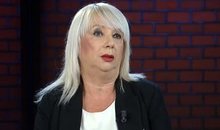
Osmani: MPs need to agree to a secret ballot for the Speaker of Parliament
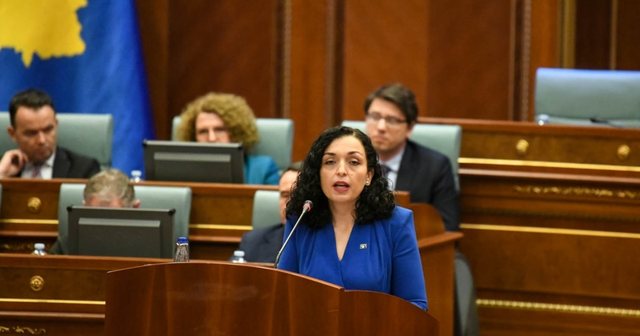
Kosovo President Vjosa Osmani has said that her legal team has concluded that the Constitutional Court's ruling does not exclude the possibility of a secret ballot for the Speaker of the Kosovo Assembly, but this requires the prior consent of all MPs.
"This means that there must be a vote, a decision of the session, before going to such a way [of secret voting]. This is the interpretation of our legal team, but it does not mean that others agree with it," Osmani said on Friday, speaking to journalists at an event in Pristina.
Osmani was referring to the Constitutional Court's ruling from June 26, which obliges MPs to constitute the Assembly within 30 days - that is, by July 26.
The Assembly has failed to constitute the composition of the nine legislatures despite four months having passed since the elections were held, in the absence of any political agreement between the parties as none of them won the necessary majority.
The process has stalled in the appointment of the Speaker and Deputy Speakers of the Assembly, more precisely in the voting method.
The Speaker of the Assembly, Avni Dehari – who comes from the winning party Lëvizja Vetëvendosje – requested the creation of a commission for a secret ballot for the speaker of parliament, after the LVV candidate did not receive the necessary 61 votes in several attempts at open voting.
The largest opposition parties, PDK, LDK, and AAK, oppose this method of voting and argue that the Constitutional Court's ruling does not allow such a thing.
LVV insists that the verdict allows this type of voting and does not give up.
Professor Kadri Kryeziu, former vice president of the Constitutional Court of Kosovo, told Radio Free Europe on Friday that the main problem of the unconstitutionality is political and not constitutional.
He stressed that all parties bear responsibility, but most of all the winning party in the parliamentary elections – the Vetevendosje Movement. According to him, if the Assembly is not constituted within 20 days, the country will go to extraordinary elections.
President Osmani spoke about the verdict a day after she concluded consultative meetings with all parliamentary parties on Wednesday and Thursday.
She said that the main parties have "still diametrically opposed positions, I would say, but this does not mean that there will be no rapprochement within this timeframe."
"There are things they can agree on. I hope there will be. The deadlock on the type of vote is very irrational," she said.
Osmani stressed that he will address the Constitutional Court if the Assembly is not constituted soon, saying that failure to fulfill this obligation "cannot go without consequences."
"So, there will be legal consequences," she said.
She said she will seek clarification from the court regarding what happens after 30 days, "because it must be clarified what the legal consequence is of failing to fulfill the constitutional obligation to constitute the Assembly within 30 days, because there must be legal consequences."
After meeting with Osmani on Wednesday, Kosovo's acting Prime Minister and LVV leader, Albin Kurti, pledged to work towards the constitution of the Assembly.
"We discussed it at length, we mentioned all the constituent elements... Madam President will also have meetings with other political representatives. Maybe in the end we will be able to see if we have made progress," Kurti said.
Meanwhile, representatives of other major parliamentary parties, in separate meetings with President Osmani on Wednesday, reiterated the request for an open vote to elect the Speaker of the Assembly.
Despite 41 attempts, the elected members of the Kosovo Assembly have not yet managed to constitute the legislative institution.
Only after the constitution of the Assembly can the new government be formed.
Parliamentary elections were held on February 9.
Vetëvendosje came first, winning 48 seats, 13 short of the minimum 61 needed to form a new government on its own. PDK came second with 24 seats, LDK third with 20, AAK-Nisma 8 and Lista Srpska 9./REL
Latest news


Tre shenjat e zodiakut që do ‘pasurohen’ në Korrik
2025-07-04 22:05:09
Gaza War: Hamas Accepts US Proposal for 60-Day Ceasefire
2025-07-04 21:50:10
Autocracy in Albania, Fuga: Governance has gotten out of control
2025-07-04 21:40:51
Meta: Agriculture on credit, the new fraud!
2025-07-04 21:26:39




Vote recount in Durrës ends without changes
2025-07-04 20:12:54
Gas station explodes in Rome, 25 injured (VIDEO)
2025-07-04 20:00:20

These afternoon habits often sabotage weight loss
2025-07-04 19:39:28
Former Arsenal player Thomas Partey accused of rape
2025-07-04 19:24:21
Shepherd disappears without a trace in Delvina
2025-07-04 19:14:31

Bardho gave Zegjine's mandate/Braho: Unfair! It violates the electoral system
2025-07-04 19:01:08


Rapid developments in the Sultanates!
2025-07-04 18:00:06



Italy tightens rules for skateboard traffic
2025-07-04 17:20:18

Unusual for the time, dense fog covers the coast of Vlora
2025-07-04 16:48:01


Accident on the Shkodra-Lezhë axis, one dead and 3 injured
2025-07-04 16:14:19
Albania with fewer requests for asylum and Albanian citizenship in 2024
2025-07-04 16:06:57

Albania last for quality of life, DP: Technical government is the solution!
2025-07-04 15:42:30
Nico Williams says "No" to Barcelona, signs with Athletic Club until 2035
2025-07-04 15:33:35
Fires in the country, four fires are still active, what is the situation?
2025-07-04 15:24:20

Summer brings big changes for these 4 zodiac signs
2025-07-04 15:00:04
Osmani: MPs need to agree to a secret ballot for the Speaker of Parliament
2025-07-04 14:51:09
Serious accident on the Peqin-Elbasan axis, two injured
2025-07-04 14:37:56

GJKKO leaves in force the security measure for the head of the KPP
2025-07-04 13:58:17
Who will replace Ilir Meta and take over the leadership of the PL?
2025-07-04 13:50:36
Berisha: Dismissal of directors in Vlora, another act of 'scapegoats'
2025-07-04 13:41:46




Librazhd/ In a serious psychological state, the young man consumes pesticides
2025-07-04 13:05:07


Weapons trafficked from Kosovo to Albania, two arrested, 8 pistols seized
2025-07-04 12:33:28
Konsumimi i tepërt i çokollatës, ja cilat janë dëmet që shkakton në organizëm
2025-07-04 12:23:35

Fires in the country, 21 fires in the last 24 hours, 4 still active
2025-07-04 12:00:19
WB calls for debt transparency: Albania to publish details of every loan
2025-07-04 11:50:05
Changes in the State Police, new names expected to lead 5 police stations
2025-07-04 11:40:06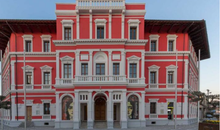
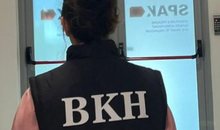
The race for the head of the BKH, the third phase on July 11
2025-07-04 11:20:23

Toxic phrases that show your relationship is in trouble
2025-07-04 11:00:10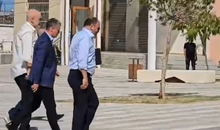

2 brothers arrested in Roskovec, cultivating narcotic plants
2025-07-04 10:38:08
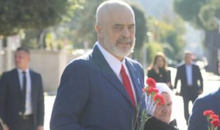
Celebrating his 61st birthday today, Rama is surprised at the pink headquarters
2025-07-04 10:21:46
Suspended from duty 4 days ago, Jonaid Myzyri appears before the Criminal Court
2025-07-04 10:16:27
Heat wave/ 5 deaths in Italy from high temperatures
2025-07-04 10:07:55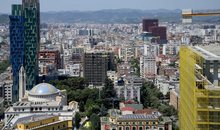
Economy slows, telecommunications joins agriculture and industry in recession
2025-07-04 09:58:13


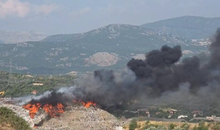
Fire continues at Elbasan incinerator, toxic smoke endangers citizens' health
2025-07-04 09:19:06
The USA celebrates its 249th anniversary of Independence
2025-07-04 09:09:22

After Rama's ultimatum, all directors of the Vlora municipality resign
2025-07-04 08:46:30
Russia, the first country in the world to recognize the Taliban government
2025-07-04 08:37:20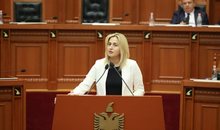
10 facts about the 10th legislature!
2025-07-04 08:21:35
Foreign exchange/ How much foreign currencies are bought and sold today
2025-07-04 08:01:50

Weather forecast for today
2025-07-04 07:36:43
"Don't be afraid", here's what the stars have predicted for each sign
2025-07-04 07:21:48
Morning Post/ In 2 lines: What mattered yesterday in Albania
2025-07-04 07:03:17
Bushati: Zegjineja, a book piloted by Rama
2025-07-03 22:57:30


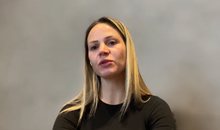

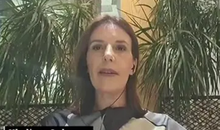

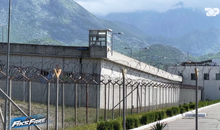

Greece imposes fee to visit Santorini, how many euros tourists must pay
2025-07-03 20:50:37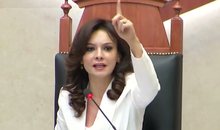
Don't make fun of the highlanders, Elisa!
2025-07-03 20:43:43
Gunfire in Durres, a 30-year-old man is injured
2025-07-03 20:30:52
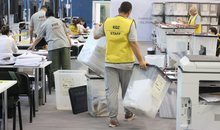
The recount in Fier cast doubt on the integrity of the vote
2025-07-03 20:09:03
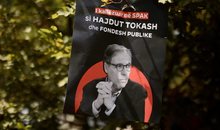

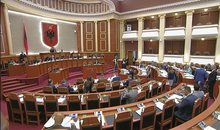

Heatwave has left at least 9 dead this week in Europe
2025-07-03 19:00:01